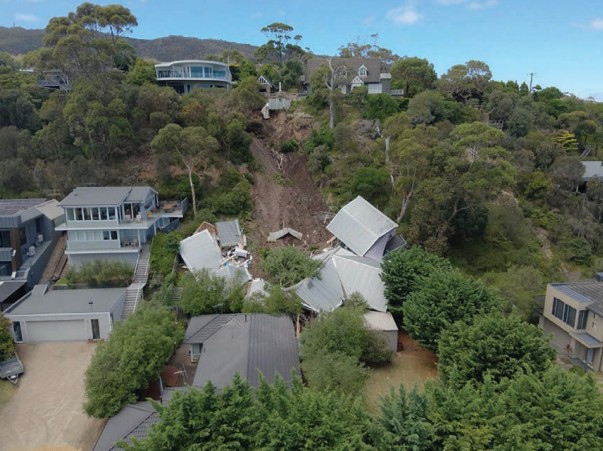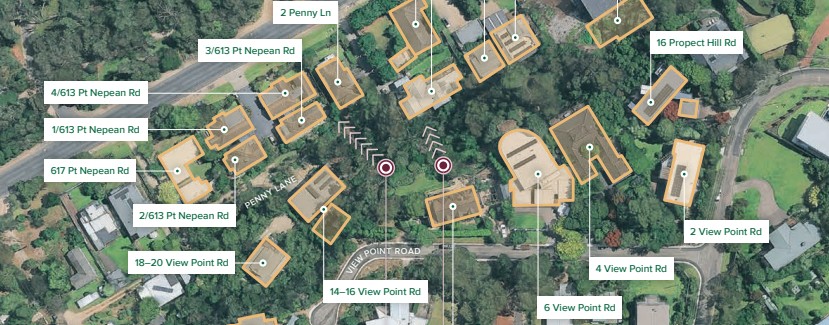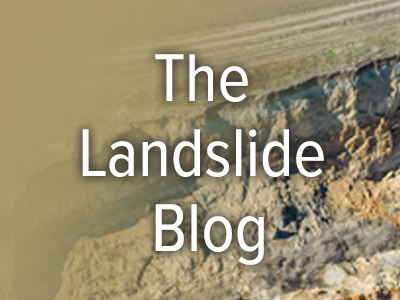The tribunal has concluded that a major leak in a water main, which released 40 million liters of water, triggered the failure
On 14 January 2025, the McCrae landslide occurred on the Mornington Peninsula in Australia. The site is located at [-38.34631, 144.93500]. I posted about this event at the time, noting that local residents had observed large volumes of water bubbling out of the ground in the period leading up to the failure. The landslide caused property damage and it resulted in serious injuries to one person.
In the aftermath of the landslide, the Victorian Government established a formal Independent Board of Inquiry into the events – a rare response so a landslide of this type. That tribunal has now published its conclusions in a report that is available online. It contains 30 recommendations some of which are specific to this site, whilst others cover landslide management and response more generally. These have widespread application, and it is worth a read.
The Report includes this image of the aftermath of the McCrae landslide:-

The report is admirably definitive about the causes of the landslide. It notes that there were previous periods of movement on the slope, but that the events of 14 January 2025 started with movement that was observed on 5 January 2925. It states that:
“Water was the trigger of the 5 January 2025 landslide and the McCrae Landslide. The source of that water was the burst water main at Bayview Road.”
The Board of Inquiry has calculated that the burst water main released about 40 million litres of water. The leak started at least 150 days before the landslide occurred, and there were numerous reports made to the water authority that there were problems at the site. However, the leak was not detected and repaired.
As I noted above, some of the recommendations pertain to landslide management more generally. One (Recommendation 7) highlights the needs for proper protocols to respond to landslide incidents (this is a widespread problem). Others (Recommendations 18 and 21) highlight the need for better training and education with regard to landslides, whilst there is also a focus on a better understanding and identification of landslide risk (Recommendations 20 and 23), and clarity about responsibility for landslide management (Recommendations 29 and 30).
News reports in Australia indicate that the Victorian Government has accepted all the findings of the McCrae landslide inquiry. Plans are now in place to ensure that the issues at the site are addressed and that the householders who have suffered such heavy losses are treated appropriately.


